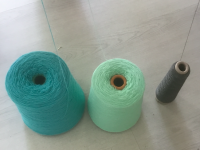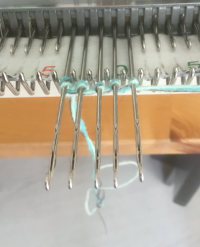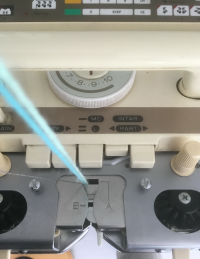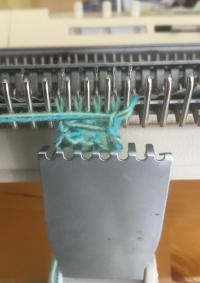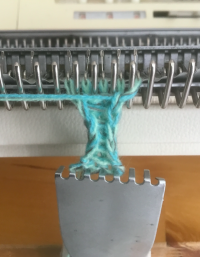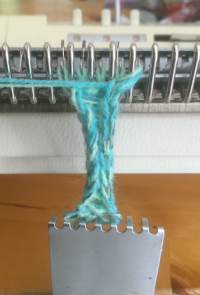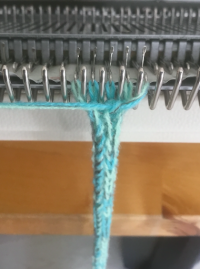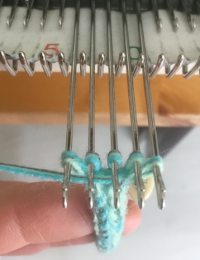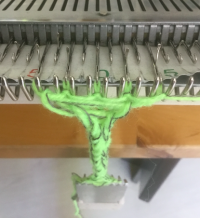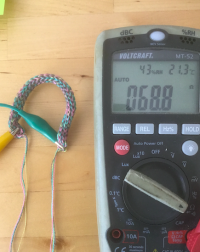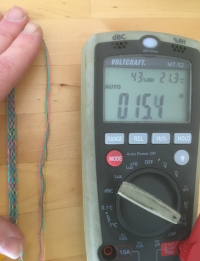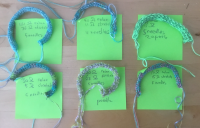Difference between revisions of "ResistanceKnitting"
Jump to navigation
Jump to search
| Line 13: | Line 13: | ||
Setting of the slider, with one of the part knobs set. The tension 8-10, depends a bit on the thickness of the yarn. | Setting of the slider, with one of the part knobs set. The tension 8-10, depends a bit on the thickness of the yarn. | ||
| − | [[File:rk12.png|200px]][[File:rk13.png|200px]][[File:rk14.png|200px]][[File:rk15.png|200px]][[File:rk16.png|200px]] | + | [[File:rk12.png|200px]] [[File:rk13.png|200px]] [[File:rk14.png|200px]] [[File:rk15.png|200px]] [[File:rk16.png|200px]] |
The knitting is done only to one side, in a few tours, the tube is formed. Ending in tension 10 (maximum) and take of as usual. | The knitting is done only to one side, in a few tours, the tube is formed. Ending in tension 10 (maximum) and take of as usual. | ||
| Line 21: | Line 21: | ||
With thicker yarn, the five needles are a needle apart. | With thicker yarn, the five needles are a needle apart. | ||
| − | [[File:rk1.png|200px]][[File:rk2.png|200px]] | + | [[File:rk1.png|200px]] [[File:rk2.png|200px]] |
Measuring the resistance in a relaxed and a stretched state. | Measuring the resistance in a relaxed and a stretched state. | ||
| − | [[File: | + | [[File:rk4.png|200px]] |
Sic examples and the values. | Sic examples and the values. | ||
Revision as of 12:04, 9 May 2020
This page is showing knitting tubes with conductive thread.
Cones with conductive thread and normal yarn.
The tube is knitted on 5 needles. The E loop mounting is used for all threads.
Setting of the slider, with one of the part knobs set. The tension 8-10, depends a bit on the thickness of the yarn.
The knitting is done only to one side, in a few tours, the tube is formed. Ending in tension 10 (maximum) and take of as usual.
With thicker yarn, the five needles are a needle apart.
Measuring the resistance in a relaxed and a stretched state.
Sic examples and the values.
